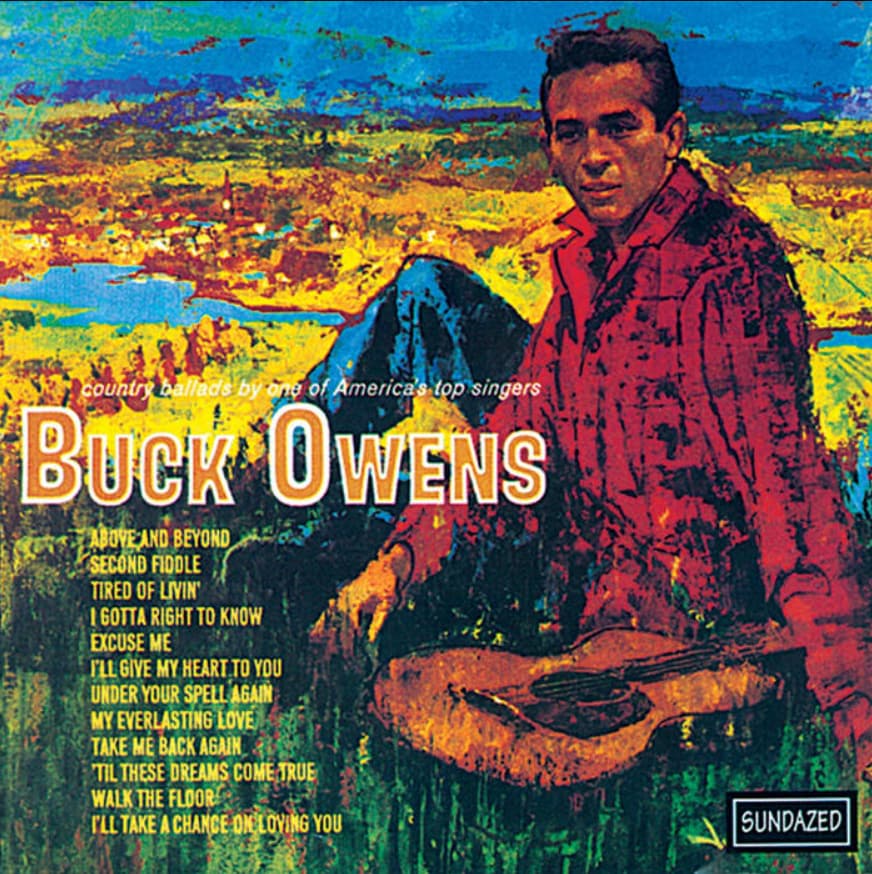
A poignant reflection on a love so deep it feels like a physical ailment.
In the vast and ever-evolving landscape of country music, certain songs don’t just pass through; they leave an indelible mark, a resonance that echoes through the generations. For many, one such timeless piece is Buck Owens’ 1960 classic, “Excuse Me (I Think I’ve Got a Heartache)“. This isn’t just a song; it’s a moment frozen in time, a bittersweet snapshot of a man grappling with a love so profound, it manifests as a literal, physical ache.
Released on the Capitol Records label, the song was an instant success, a testament to its raw, emotional power and relatable theme. It swiftly climbed the charts, peaking at No. 2 on the Billboard Hot Country Singles chart. While it narrowly missed the top spot, its chart performance was a clear indication of its widespread appeal, solidifying Owens’ position as a leading figure in the country music scene. The track was a key highlight on his second studio album, “Buck Owens Sings Harlan Howard“, released in 1961. This album was a tribute to the renowned songwriter, Harlan Howard, and this specific song, co-written by Buck Owens and Harlan Howard, stood out as a gem, a perfect blend of lyrical genius and vocal delivery.
The story behind the song is as compelling as the melody itself. It speaks to a common human experience: the physical and emotional toll of a broken heart. The lyrics paint a vivid picture of a man trying to maintain his composure in a public setting, possibly a dance hall or a saloon, while being overcome by the pain of seeing his former love. The “heartache” he feels is so intense that it’s no longer a mere metaphor; it’s a tangible ailment, a sharp, piercing pain that forces him to make an excuse and leave. This isn’t just a story of heartbreak; it’s a narrative of vulnerability, of a man who, despite his best efforts to be strong, is utterly undone by the sight of the one he loves. The song’s simplicity is its strength; it doesn’t rely on complex metaphors or convoluted plots. It tells a simple, relatable story with a raw honesty that cuts straight to the heart.
For those who came of age with this music, the song evokes a powerful sense of nostalgia. It takes you back to a time of jukeboxes, vinyl records, and late-night drives. The gentle, yet steady rhythm, and Owens’ smooth, sincere vocals, are a direct link to a bygone era. It’s a song that could soundtrack a thousand memories: a first dance, a last goodbye, or a quiet moment of reflection. The phrase “Excuse me (I think I’ve got a heartache)” became more than just a line in a song; it became a part of the lexicon of a generation, a shorthand for a deep, inexpressible emotional pain. It’s a reminder that sometimes, the most profound emotions are the ones we can’t fully articulate, the ones that make us feel physically ill.
Decades later, the song’s message remains as relevant as ever. It reminds us that love, in all its messy glory, can hurt. It can leave us feeling exposed and vulnerable. But it also reminds us of the power of music to capture these complex emotions and give them a voice. Buck Owens didn’t just sing a song; he gave a name to a feeling we’ve all known. It’s a timeless testament to the human condition, a beautiful, melancholy melody that will continue to resonate with listeners for years to come.